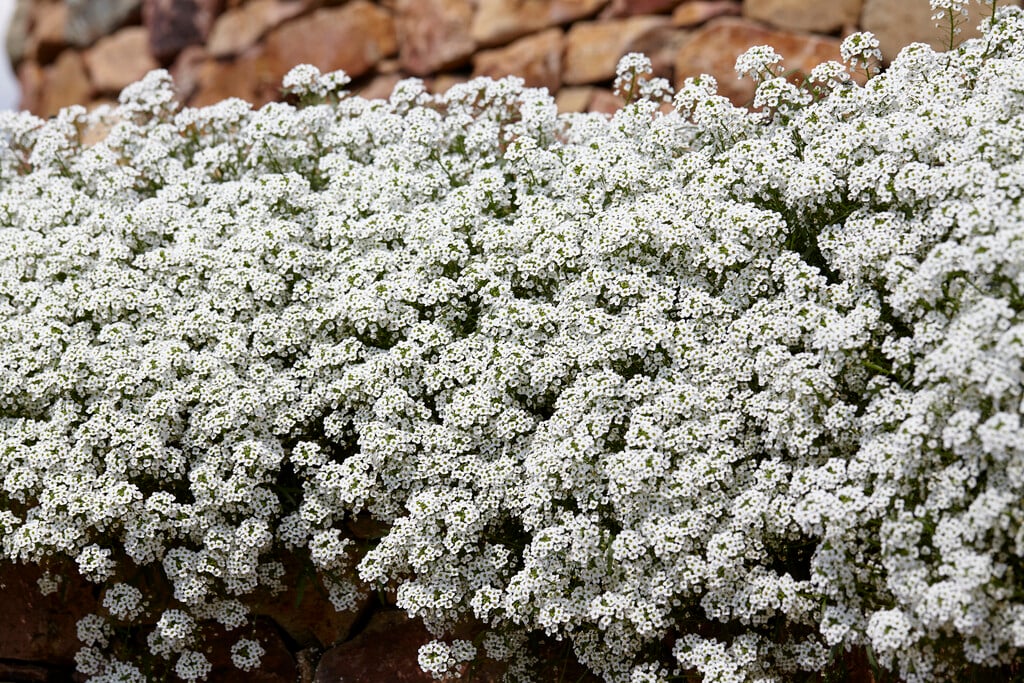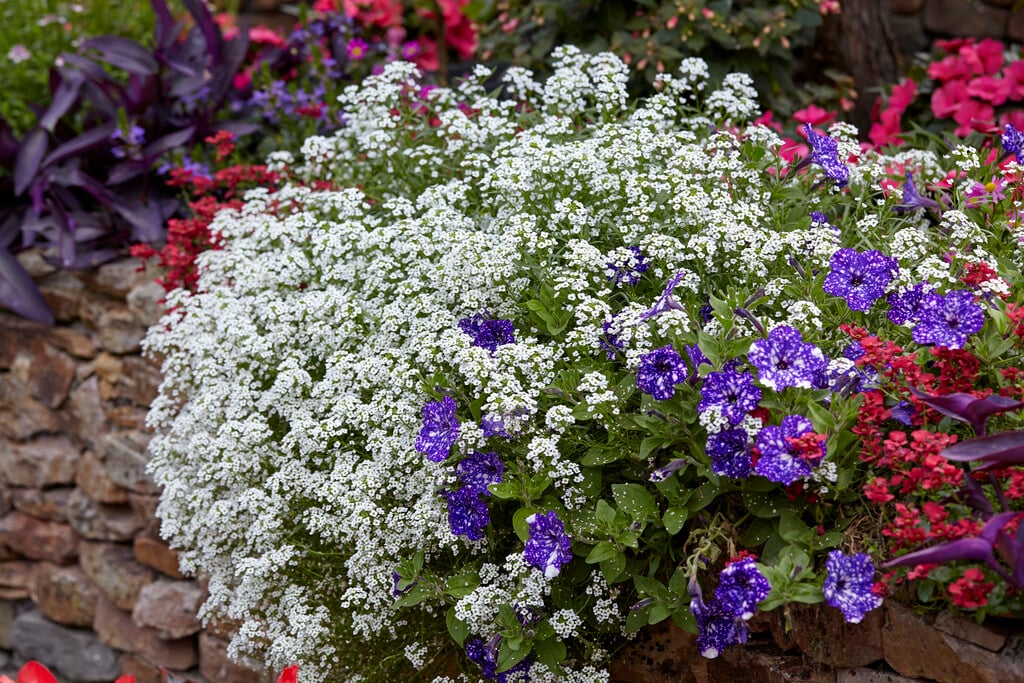Lobularia maritima
sweet alyssum
A compact and low-growing, bushy annual or short-lived perennial, grown for its tiny, white, honey-scented flowers, which are borne in rounded clusters throughout summer. A good plant to attract pollinating insects
Size
Ultimate height
Up to 10cmTime to ultimate height
1–2 yearsUltimate spread
0.1–0.5 metresGrowing conditions
Moisture
Well–drainedpH
Acid, Alkaline, NeutralColour & scent
| Stem | Flower | Foliage | Fruit | |
| Spring | Green | |||
|---|---|---|---|---|
| Summer | White | Green | ||
| Autumn | Green | |||
| Winter |
Position
- Full sun
Aspect
South–facing or West–facing
Exposure
Exposed or Sheltered Hardiness
H3Botanical details
- Family
- Brassicaceae
- Native to GB / Ireland
- No
- Foliage
- Deciduous
- Habit
- Matforming
- Genus
Lobularia can be annuals or perennials, of low spreading habit, with simple leaves and short terminal racemes of 4-petalled, fragrant flowers in summer
- Name status
Correct
- Plant range
- Mediterranean, Canary Islands
How to grow
Cultivation
Grow in light, moderately fertile, well-drained soil in full sun
Propagation
Propagate by sowing seed in situ in spring
Suggested planting locations and garden types
- City and courtyard gardens
- Coastal
- Cottage and informal garden
- Patio and container plants
- Wildlife gardens
- Bedding
- Garden edging
Pruning
Clip over after the first flush of blooms to encourage further flowering
Pests
May be susceptible to downy mildews, clubroot and white blister
Diseases
May be susceptible to slugs and flea beetles
Love gardening
Sign up to receive regular gardening tips, inspiration, offers and more
View our Privacy Policy
Get involved
The Royal Horticultural Society is the UK’s leading gardening charity. We aim to enrich everyone’s life through plants, and make the UK a greener and more beautiful place.

